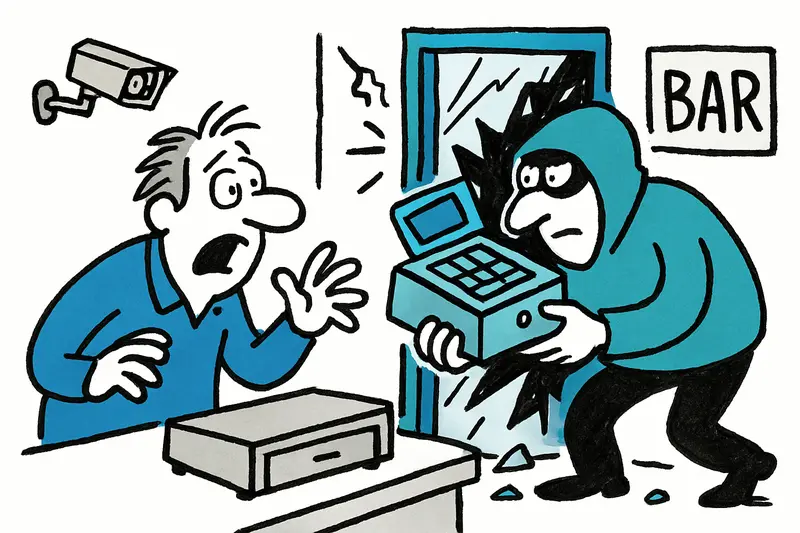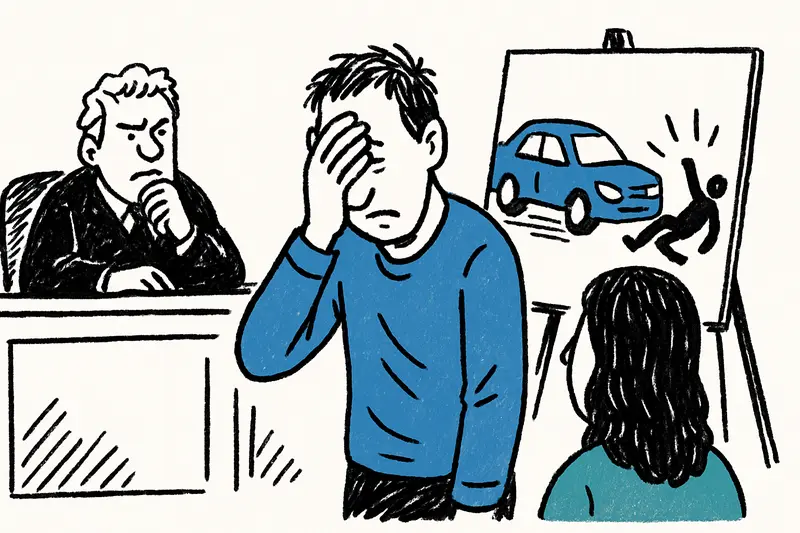
Fresh Start in Cala Rajada — Billionaire Myth or New Risk?
Peter Mike Wappler, once a convicted con artist, now lives in Cala Rajada. We ask: What does his return mean for the island — and which gaps in the system remain?
Fresh Start in Cala Rajada — Billionaire Myth or New Risk?
Key question: How much trust can a municipality place in a well-known ex-offender when he settles here?
In Mallorca people rarely beat around the bush. At the harbor of Cala Rajada you hear the clatter of fishermen's boxes in the morning, the cries of seagulls and the distant hum of scooters on the coastal road. In the middle of it all: a luxury apartment with a pool, champagne glasses and a man narrating his life story in voice-over. Peter Mike Wappler, who became known in Germany as a con artist and by his own account served lengthy prison terms, is seen here as a man trying to reinvent himself. The scenario is perfect for headlines — but for the island it is also a reminder of unresolved questions.
Wappler himself speaks of stock market speculation, diamond deals, model agencies and property sales with forged documents. He mentions years behind bars, a high-profile escape attempt and encounters with well-known personalities. He is reportedly celebrating his 70th birthday and openly displays watches, expensive cars and bundles of cash. Such images are polarizing: for some they are proof of successful reintegration, for others evidence that much wrongdoing was never fully addressed.
The critical analysis starts with three simple points: which facts are legally settled, which claims remain open and how transparent are ownership structures on the island? Public statements from the person involved are one side of the coin; court documents, enforced judgments and ongoing claims are the other. In Mallorca, where real estate and wealth are closely linked, these differences are not merely theoretical — they have direct consequences for buyers, neighbors and local authorities.
What is often missing from public debate is the structural question: what instruments do municipalities, notaries and buyers have to protect themselves against manipulated property deals? In Spain notaries (Consejo General del Notariado) and the land registry (Colegio de Registradores de España) are central institutions in property transfers. Yet past cases (for example, the Arrest in Santanyí: How vulnerable is Mallorca's real estate market to fraud?) show that forged documents and concealed ownership structures remain possible, especially when international buyers and opaque financial flows are involved. On the island people too rarely ask out loud: is the current duty of care sufficient?
A small everyday scene from Cala Rajada: the cafés on the plaza fill up, an elderly couple watches the activity on the promenade from their seat. They have just learned that a luxury villa on their street has changed hands again — for cash, neighbors say. Such rumors spread quickly; they create uncertainty, suspicious glances toward new neighbors and pressure on municipalities to issue statements they often cannot legally make.
Concrete solutions cannot be built from empty words. I propose: first, better transparency in property transactions through mandatory verification protocols by notaries that are publicly accessible with the land registry entry. Second, an improved information system between German and Spanish judicial authorities for financial and fraud offenses (for example via the European Judicial Network on cross-border judicial cooperation) so that convictions and outstanding claims are considered in cross-border transactions. Third, public information campaigns for buyers in Mallorca: what are the red flags with anonymous payments, how to read land registry entries correctly and when to commission enhanced due diligence?
At municipal level, authorities could consider whether additional checks are needed when large sums are paid in cash or complex trust structures are used. This is legally sensitive; no one wants to unduly hinder property rights. Yet a greater degree of caution in transactions that appear unusual would be an appropriate protection for the island community.
It is also important to keep the social perspective in mind: reintegration is not taboo. A person who has served a sentence must be allowed to reintegrate. It becomes problematic when reintegration turns into a PR machine that obscures possible civil claims or outstanding restitutions. The balance between the right to a fresh start and the public's legitimate interest in clarity must be preserved.
My pointed conclusion: Cala Rajada can tolerate the sight of a man with expensive jewelry and loud stories, provided the island strengthens its protective mechanisms. Those who buy here or expect neighborhood peace have a right to comprehensible ownership records. And those who publicly promote a new life should show court-documented facts rather than champagne. Otherwise curiosity quickly turns into distrust — and that harms a community more than any headline.
Read, researched, and newly interpreted for you: Source
Similar News

Storm system under sunny skies: Why Mallorca must not underestimate the wind
Mild days but strong wind: hurricane-force gusts up to 119 km/h were recorded overnight. AEMET warned of heavy gusts alo...

How a Bank Branch in Mallorca Siphoned Off Customers' Funds for Years: Questions, Analysis and Solutions
In Sa Pobla a former bank employee is said to have siphoned off customers' funds for years. A trial, long‑standing contr...

New Break-in in Valldemossa: Why the Picture-Perfect Village Mustn't Become an Open-Air Target
In Valldemossa a bar on Vía Blanquerna was broken into overnight: the cash register (€8,000) and cash are missing from t...

Fatal Crash in Palma: Verdict — and the Questions That Remain
A court in Palma sentenced a man to two years in prison and a fine after a 36-year-old German woman was fatally struck o...

Palma invests nearly €75,000 in sports centers – is that enough for the problems?
Palma's sports office spent around €74,700 on new equipment in three sports facilities. One indoor pool remains closed —...
More to explore
Discover more interesting content

Experience Mallorca's Best Beaches and Coves with SUP and Snorkeling

Spanish Cooking Workshop in Mallorca
